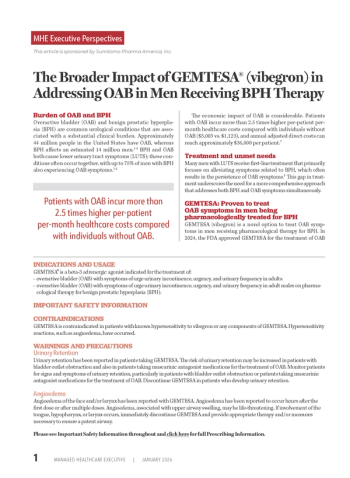
Pharmacy Benefits for Today’s Employer Challenges
Sponsored by RxBenefits.
The pharmacy benefits landscape has become nearly unrecognizable over the past decade. Soaring drug prices and surging utilization of high-cost categories like GLP-1s and specialty drugs are putting immense pressure on plan bottom lines. Consider that
Meanwhile, vertical integration and a system riddled with complex, often opaque business practices have created a tough-to-navigate maze for employers trying to demystify their pharmacy benefits management (PBM) options.
While traditional pharmacy benefits models have been the most broadly used solutions historically, the rigid, one-size-fits-all nature of such solutions now falls short for self-funded plans, which have unique member demographics and plan goals, and are struggling to thread the needle when it comes to keeping plan costs sustainable and taking care of their members.
A Misguided Focus on Discounts and Rebates
One of the challenges of traditional models is a fixation with manufacturer rebates. The reason this is a flawed approach is that a large discount on a high-cost drug when effective, cheaper alternatives are available, is still a waste of money. And yet, more than 40% of all pharmacy spend is now tied up in rebates and discounts,
Effective drug cost management requires a strategic, multi-layered approach that balances aggressive cost containment with member access to necessary medications. Strategic, sustainable success requires four critical components.
- Plan Design: The Foundation of Cost Control: Smart plan design is the first line of defense against runaway pharmacy costs. For instance, implementing lower copays for generic medications and higher tiers for brands without generic equivalents naturally steers utilization toward cost-effective options.
- Strategic Formulary Optimization: Modern formulary strategy requires prioritizing effective, lower-cost alternatives that deliver the best value equation – considering total net cost, not just rates and rebates – should be prioritized, when available, over drugs with high price tags and therefore, big manufacturer discounts.
- Lowest Net Cost Orientation in Network Design: Different pharmacies often have dramatically different acquisition costs for the same medications. Steering members to low-cost leaders for specific drug categories – rather than requiring the use of a PBM-owned location – can yield substantial savings for both members and clients.
- Clinical Utilization Management:
Robust clinical management – which is both a cost control mechanism and a quality assurance program – ensures medications are prescribed appropriately and used effectively, focusing on the highest-impact categories and redirecting members to effective, lower-cost alternatives rather than denying access. Human-led prior authorization reviews can ensure real clinicians assess actual patient needs, appropriateness of therapy, and alignment with evidence-based guidelines, thus ensuring that treatments are clinically appropriate and cost-effective, preventing waste while maintaining access.
An Aligned Approach
This is why RxBenefits was founded three decades ago as a pharmacy benefits optimizer,
Newsletter
Get the latest industry news, event updates, and more from Managed healthcare Executive.





















